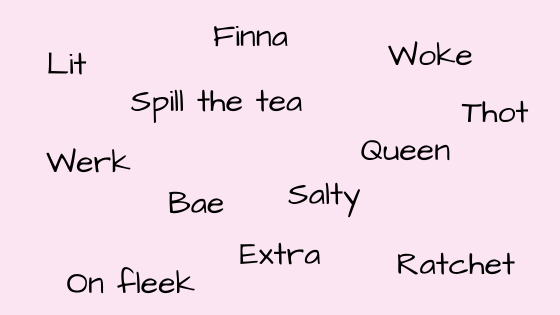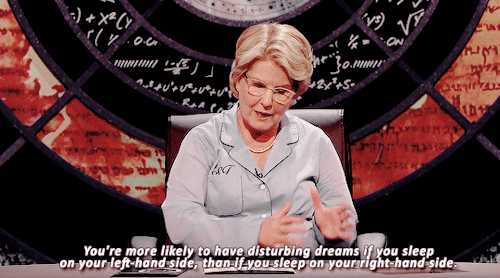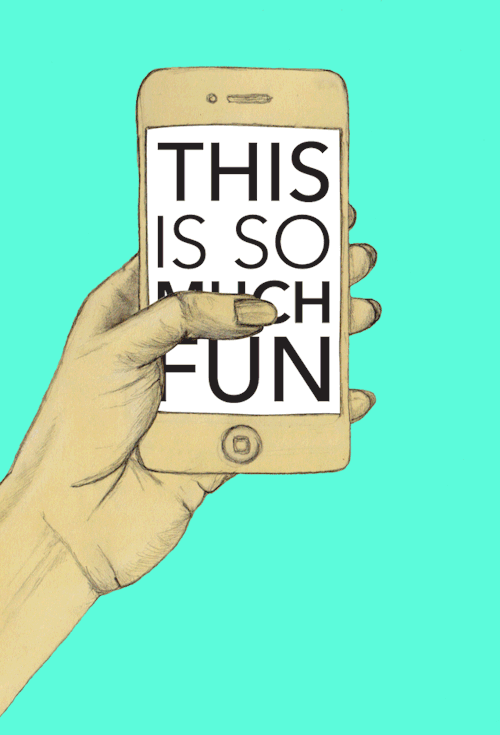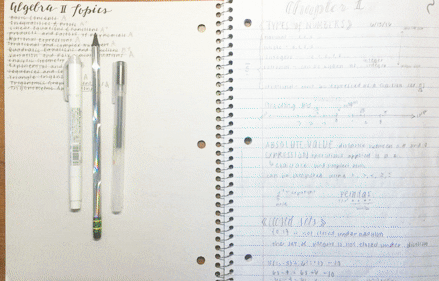What is African American Vernacular English (AAVE)?
AAVE is an English dialect used by African Americans. Many words like salty, bae, woke and the habitual be verb construction come from AAVE; it’s a dialect that bares a wealth of linguistic gold. It’s often represented in African American artists’ music, particularly hip-hop, but is increasingly appearing in non-Black people’s vernacular as they continue appropriating it. This is incredibly problematic. As Nathan Metivier put it in an article he published in January 2020:
While the widespread use of AAVE by white speakers may appear to reflect an appreciation of African American culture or a bridge across racial tensions, the lack of recognition for the origins of culturally embedded AAVE terms and the attitudes of the white speech community — who flippantly overuse and eventually dismiss appropriated AAVE terms as “outdated” or “no longer cool” — ultimately reflect a lack of appreciation for the African American speech community’s language, culture, and art forms by the cultural hegemony.
Nathan Metivier, ‘Linguistic Appropriation: AAVE, Hip-Hop and Digital Culture’
What is linguistic appropriation?
Much like other kinds of appropriation, linguistic appropriation is the uptake of a language, dialect (often specific features) by the non-native speakers without understanding the cultural significance. These non-native speakers’ use often undermines the subversive nature of the language. In the case of AAVE, non-Black speakers do not stop to consider the implications of using, judging and misusing linguistic features that they come into contact with primarily through music and other popular media. This lack of empathy and informed use results in native AAVE speakers being further marginalised, especially when racial tensions are as high as they currently are amid the Black Lives Matter revolution.
Why can’t I use AAVE?
One of the first arguments refuting the idea that AAVE should be reserved for native African American speakers is something along the lines of ‘culture is for everyone’ and ‘it’s racist to not allow people to appreciate culture’. Culture can be appreciated without being appropriated. Unfortunately, it’s not appreciation non-Black people are exhibiting when they use AAVE, it’s a blatant disregard for cultural significance, and the historic and current oppression Black communities by white people.
There is a difference between sharing and taking. At present, our society is incredibly imbalanced in favour of white people. White supremacy rules and influences the majority of decisions, policies and practices in Western society. As a result, where African Americans are criticised and refused opportunities for using AAVE in job interviews or public spaces more generally, white people are not. This is racism in action. The rules are different based on a history of racism and white supremacy which disadvantages African Americans at every turn and that is NOT okay. White people cannot engage in activities and language which profits us – makes us look ‘cool’ (ew) or ‘different’ (double ew) or ‘exotic’ (a term so racist it’s actually vile) – while it puts African Americans at risk financially, legally or otherwise.
Much of linguistic change is controlled by the dominant group in an area. English was shaped by those who were in power, which is why there are remnants of French, Norse and other languages and dialects mixed into our modern vocabulary. Dominant languages determined much of language change. And sometimes, it did that by encouraging the non-dominant language to adapt and change in subversive ways. With the white supremacist dominant structuring of much of Western society, AAVE – the language of African American communities – is not a dominant language.
At best, this form of appropriation is disrespectful to AAVE’s native speech community, regardless of how innocent the intentions of the white speech community are. At worst, appropriating AAVE is actively destructive to the culture it comes from because it trivializes a rich language form that is embedded in a cultural history of oppression as nothing more than “silly youth slang.”
Nathan Metivier, ‘Linguistic Appropriation: AAVE, Hip-Hop, and Digital Culture’
English is an incredibly expressive language. We can turn just about any word into a euphemism for drunk. We have a bountiful vocabulary to work with. We really don’t need to appropriate AAVE to become more expressive. Especially when doing so is racially insensitive and, quite frankly, oppressive.
You might be copying characters from films or high profile individuals on reality TV. You’re also able to actively engage with the language and habits you’re picking up and purposefully choose to correct yourself aloud when you slip into AAVE and replace it with a non-appropriative alternative. Training yourself to think more carefully and approach language more pointedly will help to ensure you communicate as you fully intend to as well.
TLDR: if you’re not Black, African American Vernacular English is not for you.








